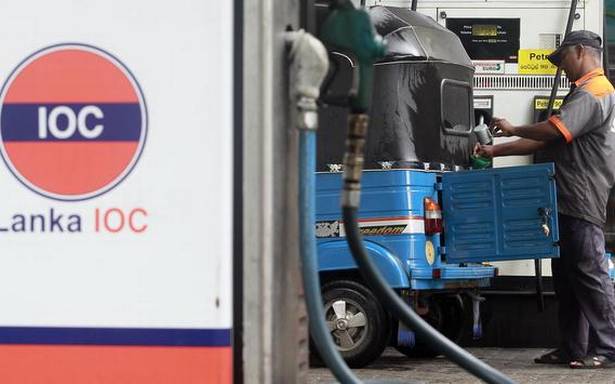Clarification comes after Sri Lankan Minister’s remarks on matter.
A day after Sri Lanka’s Minister of Energy remarked that the government would “re-acquire” World War-era oil tanks in the eastern city of Trincomalee — which were leased out to an Indian Oil Corporation (IOC) subsidiary in 2003 — India said the bilateral understanding on jointly developing and operating the tank farm stood.
“The two governments have consulted each other to explore mutually acceptable modalities for jointly developing and operating the facility in accordance with existing bilateral understandings, including the Memorandum of Understanding (MoU) of 2017,” a statement from the Indian mission here said, denying reports in “sections of media” that the old deal was “scrapped”.
On Wednesday, Minister Udaya Gammanpila said his government was “proud to re-acquire” the oil tanks after being denied access since 2003, when Sri Lanka leased out 99 oil tanks to IOC for 35 years, for an annual payment of $1,00,000. Lanka IOC, a subsidiary set up then, has been using 15 tanks, while the rest await an upgrade for use.
In an overarching MoU in 2017 on development cooperation, India and Sri Lanka, when the Maithripala Sirisena-Ranil Wickremesinghe administration was in office, agreed to jointly [with LIOC involvement] refurbish the remaining 84 tanks and build related infrastructure in the strategically located eastern port city. But the two sides were unable to firm up the terms of the project, amid mounting pressure from oil sector trade unions that sought more control for the state-run Ceylon Petroleum Corporation (CPC).
New terms
Sri Lanka is revisiting the project on new terms, the Minister has said, wherein the CPC will retain majority stake in the joint venture. The LIOC will hold minority share, the Minister clarified in a press briefing on Thursday, emphasising that no agreement would be inked before wide public discussions “especially with the Maha Sangha [Buddhist clergy], other religious leaders, nationalist organisations and trade unions”.
The Minister’s statements come weeks after monks and port worker unions agitated against any foreign role in the country’s “national assets”, prompting Colombo to pull out of a 2019 agreement with India and Japan to jointly develop a Colombo Port terminal. The move caused considerable diplomatic strain, as India and Japan voiced displeasure at Colombo’s “unilateral” decision.
On the Trincomalee oil tank farm project, the Indian High Commission said: “India looks forward to formal discussions on the matter, and expeditious implementation of their outcome to mutual benefit.”
Source: Read Full Article

